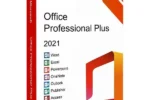Android 14 Fire TV is set to revolutionize the way users experience their smart televisions, as Amazon integrates this advanced operating system into its line of Fire TVs. This new platform promises enhancements over the existing Fire OS, providing users with a more seamless and responsive interface. As the Fire TV operating system evolves, it marks a significant step forward for Amazon in maintaining its competitive edge in the streaming device market. With Android 14 at its core, Amazon aims to deliver an enriched multimedia experience, incorporating improved performance and new features. As we dive deeper into what Android 14 Fire TV entails, we will explore its implications for future updates and the potential shift in Amazon’s branding strategy.
The upcoming innovations in Amazon’s streaming devices, often referred to as the next generation of Fire TV, are largely centered around the integration of Android 14. This new OS, while commonly associated with Fire TV, reflects Amazon’s strategic pivot towards a more robust software foundation. Users can expect a blend of familiar Fire OS functionalities with the enhancements that come with Android 14, leading to a more dynamic viewing experience. Moreover, the anticipated transition hints at a nuanced branding approach, as Amazon may opt for terms like “Fire TV operating system” to describe the new platform. This shift not only emphasizes the technological upgrades but also opens the door for broader compatibility with Android applications.
The Transition to Android 14 for Fire TV
Amazon’s decision to transition its Fire TV operating system to one based on Android 14 marks a significant evolution in its smart TV lineup. This change is poised to enhance user experience, providing better performance, improved security features, and access to a wider array of applications. The integration of Android 14 promises to leverage the latest advancements in the Android ecosystem, allowing Fire TV users to enjoy a more seamless and responsive interface.
Moreover, the move to an Android 14-based platform suggests that Amazon is committed to maintaining compatibility with existing applications while also inviting developers to innovate. This development is particularly crucial as Fire TVs have historically thrived on their wide-ranging app availability. Developers now have the opportunity to optimize their apps for the new operating system, ensuring that users benefit from the latest features and functionalities.
Understanding Fire OS and Android 14
While the upcoming OS for Fire TVs will be based on Android 14, Amazon has opted not to label it as Fire OS. This decision raises questions about the future branding strategies for their smart TV platforms. Fire OS has served as the hallmark of Amazon’s Fire TV devices, and its rebranding could indicate a shift in how the company wants to position its products in the marketplace. By using Android 14 as the foundational OS, Amazon may be aiming to attract a broader audience that is already familiar with Android’s capabilities.
The potential for a new Fire TV operating system based on Android 14 also suggests improvements in app compatibility and performance. Developers will need to adapt their applications to align with the 64-bit architecture that the new OS will support, which is a significant change from previous iterations. This transition is essential for maintaining the quality and responsiveness of apps, ensuring that Fire TV users have access to a robust library of content that meets modern standards.
The Role of Vega OS in Amazon’s Ecosystem
As Amazon continues to innovate with its devices, the introduction of Vega OS on other platforms like the Echo Show indicates a broader strategy to create a unified ecosystem. While Fire TVs will adopt an Android 14-based operating system, Vega OS may represent Amazon’s effort to establish a more proprietary environment for its devices. This could lead to unique features and integrations that enhance the functionality of non-TV devices.
However, the parallel development of both Android 14 for Fire TVs and Vega OS for other products suggests that Amazon is not abandoning its roots in the Android ecosystem. Instead, it appears to be diversifying its offerings to cater to different user needs and preferences. It will be interesting to see how these two operating systems evolve and whether they will complement each other or serve distinct purposes within Amazon’s product lineup.
Developer Opportunities with Android 14-based Fire TV
The introduction of an Android 14-based Fire TV operating system presents exciting opportunities for developers. With Amazon providing select developers remote access to virtual devices for app testing, there is a clear emphasis on ensuring that applications run smoothly on the new platform before its official rollout. This proactive approach not only fosters innovation but also encourages a collaborative relationship between Amazon and the developer community.
Additionally, as developers adapt their apps for the changes brought about by the 64-bit architecture, they may discover new functionalities that can enhance user experiences. The shift to Android 14 may also prompt developers to explore advanced features such as improved graphics processing and more efficient memory usage, ultimately leading to more engaging applications for Fire TV users.
Impact on User Experience with Fire TV
With the shift to an Android 14-based operating system, users can anticipate a notable enhancement in their overall experience with Fire TV devices. The new OS is expected to bring improved performance and faster load times, which are critical for streaming services and gaming applications. Users can enjoy a more responsive interface, making navigation through apps and content much smoother.
Furthermore, the integration of Android 14 may provide users with access to new features and functionalities that were previously unavailable on Fire OS. This could include better support for high-resolution content, advanced user interface options, and more robust security features, ensuring that users feel confident while enjoying their favorite shows and movies.
Fire TV Operating System: Current vs Future
Currently, Fire TVs operate on Fire OS 8, which is built on Android 11. However, the impending transition to an Android 14-based operating system signifies a leap forward in terms of capabilities and features. Users can expect a more modern interface and improved integration with cloud services and smart home devices, reflecting the latest trends in technology.
The anticipated changes not only promise enhanced usability but also indicate that Amazon is actively listening to user feedback and industry developments. The shift towards an Android 14 foundation may also help to future-proof Fire TVs, allowing for more frequent updates and a broader range of features that align with user expectations and technological advancements.
Exploring the Future of Smart TVs with Android 14
As smart TVs continue to evolve, the adoption of an Android 14-based operating system by Amazon’s Fire TVs could set a new standard for what users expect from their viewing devices. This transition represents a significant pivot in the smart TV landscape, as it combines Amazon’s brand strength with the robust capabilities of the Android ecosystem.
Looking ahead, the integration of Android 14 may open doors for more extensive partnerships with content providers, offering users a richer content ecosystem. By leveraging the power of Android, Fire TVs could potentially enhance their streaming capabilities, allowing for better access to live TV, on-demand services, and exclusive content.
Comparing Android 14 to Previous Fire OS Versions
The transition from Fire OS 8 to an Android 14-based operating system marks a substantial change in the underlying technology powering Fire TVs. Previously, Fire OS was a heavily customized version of Android, but with the new Android 14, users can expect more direct access to the core Android functionalities and updates. This could lead to faster feature rollouts and better overall performance.
Additionally, Android 14’s enhancements may introduce new features related to user experience, such as improved voice control integration, better app suggestions based on viewing habits, and enhanced support for third-party applications. This shift could ultimately make Fire TVs more competitive in a market increasingly dominated by streaming devices and smart TVs.
Security Enhancements in Android 14 for Fire TVs
One of the most important aspects of the transition to an Android 14-based operating system is the potential for enhanced security features. With each new version of Android, Google introduces improvements designed to protect user data and privacy. Fire TVs operating on this new system could benefit from these enhancements, providing users with a safer viewing experience.
In addition, the shift to a 64-bit architecture means that developers will need to prioritize security in their app designs. This adds an extra layer of protection against vulnerabilities, ensuring that the Fire TV ecosystem remains robust against threats. As users become more aware of security issues, these advancements will be crucial in maintaining trust in the Fire TV brand.
Frequently Asked Questions
What is Android 14 Fire TV and how does it differ from Fire OS?
Android 14 Fire TV refers to the new operating system that will power future Fire TV devices, based on Android 14. Unlike previous versions, it may not carry the Fire OS branding, suggesting a potential rebranding or a shift in how Amazon positions its operating systems. Fire OS 8 currently runs on Android 11, but the move to an Android 14-based system indicates a significant upgrade.
Will future Amazon Fire TV models run on Android 14?
Yes, future Amazon Fire TV models are confirmed to run on an operating system based on Android 14. Amazon has stated that this new OS will not necessarily be branded as Fire OS, but it will utilize the features and capabilities of Android 14.
What changes can developers expect with the Android 14 Fire TV operating system?
Developers will need to prepare for the transition to Android 14 Fire TV as it will operate exclusively in 64-bit mode, which requires adjustments to app compatibility. Amazon is already providing select developers with virtual Android 14-based Fire TV devices for testing, ensuring they can adapt their applications accordingly.
Is Vega OS replacing Fire OS on Fire TV devices?
No, Vega OS is not replacing Fire OS on Fire TV devices. While Amazon is exploring Vega OS for other devices, the upcoming Fire TVs will continue to utilize an Android 14-based operating system, confirming the company’s commitment to the Android platform for these products.
How will the transition to Android 14 impact Fire TV users?
The transition to Android 14 Fire TV is expected to enhance user experience with improved performance and new features. While the branding may change, users can anticipate continued support and updates that align with the latest advancements in Android technology.
What are the benefits of the Android 14-based Fire TV operating system?
The Android 14-based Fire TV operating system will likely bring several benefits, including better app performance, enhanced security features, and improved compatibility with newer applications. Users can also look forward to a more streamlined experience as Amazon integrates the latest Android functionalities.
Will there be any new features with Android 14 on Fire TV?
Yes, with the introduction of Android 14 on Fire TV, users can expect new features such as increased 64-bit app support, enhanced multimedia capabilities, and potentially new UI elements. These updates aim to provide a more robust and enjoyable viewing experience.
Can I still use my current apps on the new Android 14 Fire TV?
Most current apps should still function on the new Android 14 Fire TV, but developers will need to ensure their apps are updated for 64-bit compatibility. Amazon will provide resources for developers to assist with this transition, so users can continue to enjoy their favorite applications.
When will the Android 14 Fire TV operating system be available?
While a specific release date for the Android 14 Fire TV operating system has not been disclosed, Amazon is actively working on its development and has begun testing with select developers. Keep an eye on announcements from Amazon for updates on availability.
How does the new Android 14 Fire TV impact my current Fire TV device?
The new Android 14 Fire TV will not affect current Fire TV devices running on older versions of Fire OS, such as Fire OS 8. However, it signifies a future direction for new devices and potential updates in the Fire TV ecosystem.
| Key Point | Details |
|---|---|
| Operating System Transition | Future Fire TVs will run on an operating system based on Android 14. |
| Fire OS Branding | Amazon has not labeled the upcoming OS as Fire OS, causing some confusion. |
| Developer Support | Select developers have access to virtual Android 14-based Fire TV devices for testing. |
| 64-bit Architecture | This will be the first Fire TV OS in years to operate exclusively in 64-bit mode, necessitating app updates. |
| Continuity with Android | The transition to an Android 14-based OS confirms Amazon’s commitment to Android for Fire TVs despite exploring Vega OS for other devices. |
Summary
Android 14 Fire TV marks a significant evolution in Amazon’s streaming devices, ensuring they remain competitive with the latest technologies. The adoption of Android 14 as the underlying operating system illustrates Amazon’s commitment to maintaining a robust platform for app developers and users alike. While the Fire OS branding may be in flux, the integration of Android 14 features promises enhanced performance and support for modern applications. As we look forward to the new Fire TVs, the shift to a 64-bit architecture is expected to provide better efficiency and speed, making Android 14 Fire TV a noteworthy advancement in Amazon’s smart TV offerings.






